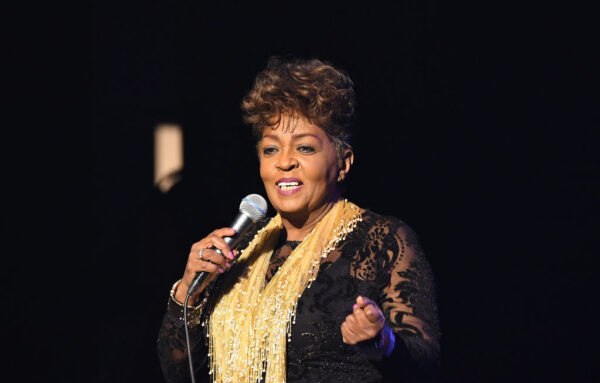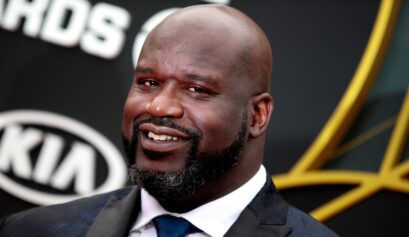R&B singer Anita Baker is one of the most iconic voices in all of music, with a career that has spanned five different decades. The Detroit native has made a mark with her sultry singing style as displayed in her chart-topping song “You Bring Me Joy,” but a lot of sadness and financial hardship has caused the artist to step out of the spotlight for years.
Now, with a rediscovered love for entertaining, the ownership of some of her masters of her music, and a net worth of $40 million, Baker is gearing up for the second wind in her career at the spry age of 64.

Early Life
The early days were challenging for the mezzo-soprano. Born in 1958, when she was two she abandoned by her mother. For years, she struggled to reconcile why her birth mother would give her up, but then came to the realization, it was an act of radical love.
“My mother gave me up when I was a baby,” the Grammy Award-winner said in Essence back in 2009. “Not because she was a bad person or because she was some monster or something. She was just a child and could not care for me. It has taken me a long time to find peace within my own heart.”
A foster family took her in, but at the age of 12, a tragedy hit when her foster mother died. Her sister Lois Landry stepped in and raised her.
Lois later on revealed to Baker that she was actually her aunt.
It took years before she reconciled her feelings about her mother and really dealt with her own abandonment issues she had because of being given away.
Music Saved Her
As a young adult, Baker found sanctuary in music — the craft that would be the saving grace of her life.
First, the singer started off in a band called Chapter 8, but eventually, after being told she had no star power, gave it up. That is until she got her big break in 1983, dropping her debut solo album “The Songstress,” which gave the world her first hit song, “Angel,” which hit No. 5 on the Billboard R&B charts that year. The next year, her song “You’re the Best Thing Yet,” was another chart-topping song. But she says, she wasn’t getting any royalties from the indie record label she was signed to and wanted out. The label sued her for breach of contract, but she eventually won her freedom, later signing with Elektra Records.
This contract afforded her creative freedom she did not previously have and the ability to produce her own music. For her second album titled “Rapture,” according to the Chicago Tribune, she was the executive producer and had the final say.
”If I failed, I would rather it be because of a mistake that I made rather than have to sit back for the rest of my life and say, ‘God, I let this jerk do my record and I knew it wasn’t what I wanted. ‘If it sails or it sinks, I’d rather it be my fault. I could live with that,” she told the Tribune in 1991.
“Rapture” went on to sell 8 million records worldwide with hit songs like “Sweet Love,” “Same Ole’ Love,” “You Bring Me Joy,” and “Caught Up in the Rapture.” Her follow-up, “Giving You the Best That I Got” sold 5 million worldwide with the title track, “Lead Me into Love,” and “Just Because.”
Still floating on a very successful cloud, Baker dropped “Compositions,” a jazzy album from 1990 that peaked at Billboard 200 at No. 5 and produced the hits “Talk to Me” and “Fairy Tales,” but all of a sudden at the height of everything, she quit music.
Baker, who married Walter Bridgforth Jr. in 1988, took a break to settle into marriage and grow her family. She had her first son Walter Baker Bridgforth in January 1993 and her second son, Edward Carlton Bridgforth in born May 1994. She dedicated her life to parenting, only sporadically releasing music in the years immediately after her sons were born.
Marriage, Divorce, and Financial Woes
Baker and Bridgforth Jr. separated in 2005 before deciding to divorce in 2007. With her divorce behind her, Baker put herself back in the mix, even earning a Grammy nomination for a 2012 rendition of Tyrese’s hit song “Lately.”
But there were still challenges. Right when she was enjoying a resurgence of her career, Baker was sued in 2010 by her house painters, Ray A. Smith Painting and Decorating, who filed their claim in Wayne County Circuit Court for $15,239.60.
“The plaintiff has frequently and repeatedly demanded payment, but Defendant Baker has neglected, failed and/or refused to pay said amount to Plaintiff, despite her numerous promises to pay the Plaintiff for said labor and materials,” the lawsuit said, according to Magic 95.5.
The Associated Press reported 2010 county records also showed she had liens of $465,733 in unpaid federal taxes, $15,952 in unpaid state taxes, and $3,470 owed to a company called Pella Window & Door. This was all topped by her ex-husband Bridgforth’s lawsuit that same year, which claimed he was being shorted in his 50 percent share of music royalties from albums she made during their marriage, terms agreed to as part of their split.
The Hollywood Walk of Famer almost went to jail for contempt of court as the royalties dispute was being hashed out, but after making a plea directly to the judge over the case, she was allowed to speak and come up with an alternative.
She said, according to WTLC, “My attorneys agree that I know more about music contracts than they do. But I’m not allowed to talk. I invented my music out of thin air, but they have to talk for me, ‘This little woman can’t talk.’ If I’d invented Ford, they would talk to me”
“If the judge tells me at the end of the day that I have to sign, I’ll comply. But I want her to hear my side. I’m not saying I’m right. I just want to be heard,” she said. Ultimately, the judge ordered that Baker and her ex-husband rewrite the terms of the royalties split in unambiguous and mutually agreed-upon language.
Since then, she kept low, working on projects with producers like Robert Glasper and others.
Bounce Back
But in 2021, something extraordinary happened, and the same woman that fought to have executive producer credit back in the early ’80s was back making boss moves.
In March of that year, Baker rallied her fans around the fact that she’d outlived some of her early recording contracts. She told them the masters were supposed to legally revert back to her based on the copyright law that says after 35 years the artist can own the music from the labels. Baker, who needed to file to claim these rights, apparently expected resistance during this process, as labels can file for an exception to reverting those rights by claiming the recording was a work-for-hire product.
As a form of protest, she told them to stop streaming her music until she gets her masters. And they did. One celebrity that helped her in her campaign was Chance the Rapper.
Months later, she posted on social media the victory that put her in the seat of power of art. She tweeted, “All My Children Are Coming Home Catalog Impossible Things Happen… Every. Single. Day. Gratefully.”
With her rights, there is a new bounce in her step, just in time to commemorate her 40th anniversary in the industry.
While Baker hasn’t revealed what she will do with her masters, an artist can make money directly from their masters through masters’ royalties, remixes and samples and sponsorships, among other things.
She tested her waters with her residency in Las Vegas in May at Venetian Resort.
Now, she is gearing up to go on tour for the first time in three decades.
On Thursday, Nov. 10, she performed a 15-date tour beginning February 11 at Hard Rock Live in Hollywood, Florida. The tour, Baker’s first since 1995, will commemorate the release of her 1983 life-changing debut album “The Songstress,” the project that proved those people wrong who said she had no star power.
And the one that set her up to be the businesswoman and artist she is today.




